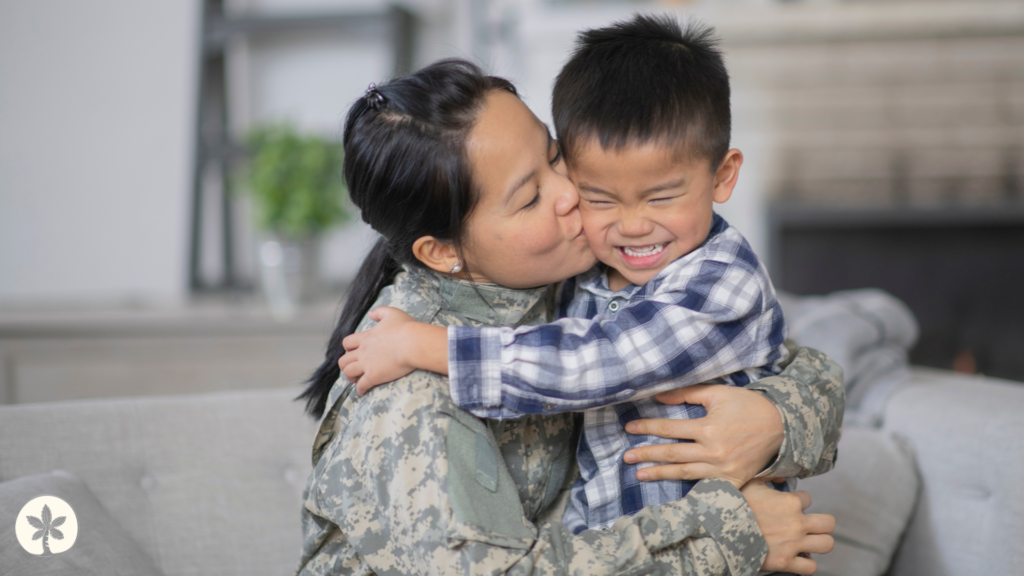PTSD in Brownsville TX: The Connection Between Trauma and Substance Abuse
PTSD in Brownsville TX is more common than many realize—and it often coexists with substance use. For many individuals, trauma and addiction are part of a painful cycle that feels impossible to break. At Saname Counseling, we provide trauma-informed therapy that helps people understand this cycle and start healing. If you or someone you love is struggling with PTSD and substance use, you’re not alone—and support is available. What Is PTSD? Post-Traumatic Stress Disorder (PTSD) is a mental health condition triggered by traumatic experiences. It can follow events such as violence, abuse, accidents, or witnessing something deeply distressing. Common symptoms of PTSD include: Flashbacks or nightmares Emotional numbness Intense anxiety or fear Difficulty sleeping or concentrating To cope with these symptoms, many people turn to alcohol or drugs. This is called self-medicating, and while it may bring temporary relief, it often makes things worse. The Link Between PTSD and Substance Abuse PTSD and substance use often reinforce one another. Here’s how the cycle typically works: Self-Medication People use substances to numb anxiety, panic, or insomnia related to trauma. Over time, this leads to dependence or addiction. Brain Chemistry PTSD changes how the brain processes fear and stress. These changes can increase cravings and make it harder to manage emotions without substances. The Vicious Cycle Using drugs or alcohol may provide short-term relief, but it often intensifies PTSD symptoms. That leads to more substance use—creating a loop that’s hard to escape. PTSD in Brownsville TX: Why Local Support Matters In Brownsville and the greater Rio Grande Valley, access to trauma-informed care can be limited. Many people struggle in silence due to stigma, cultural barriers, or lack of awareness. That’s why our team at Saname Counseling prioritizes inclusive, culturally affirming therapy for those dealing with PTSD in Brownsville TX. We understand how trauma and addiction often go hand in hand—and how to treat both with care and clarity. How Therapy Can Help Break the Cycle Healing from PTSD and substance use takes time and the right support. We use evidence-based therapies to help clients break free from survival patterns and begin living fully again. Trauma-Informed Care This approach centers your experience and safety. You don’t need to relive trauma to heal—we meet you where you are and work at your pace. Cognitive Behavioral Therapy (CBT) CBT helps you identify unhelpful thoughts and patterns and replace them with more supportive ones. It teaches concrete tools for coping with distress without relying on substances. Eye Movement Desensitization and Reprocessing (EMDR) EMDR is especially effective for treating PTSD. It helps the brain reprocess trauma, making it feel less overwhelming and reducing the need for unhealthy coping tools. Integrated Treatment We combine therapy with support for substance recovery. When needed, we coordinate with prescribers or community resources to provide wraparound care. Start Healing from PTSD in Brownsville TX If you’re dealing with PTSD and substance use, it can feel like there’s no way out—but there is. At Saname Counseling, we offer personalized, trauma-informed therapy to help you reclaim your life. Our clinicians work with adults, professionals, first-gen individuals, and those carrying invisible burdens. You don’t have to do this alone. Call or Text: 956-434-2520Email: hello@sanametx.comSchedule your first session or explore our services to get started. Additional Resources on PTSD and Substance Use SAMHSA – Trauma-Informed Care in Behavioral Health Services NAMI – PTSD and Co-occurring Disorders PubMed – Research on PTSD and Substance Abuse If you’d like to dive deeper into the connection between PTSD, substance abuse, and its impact, consider reviewing the following resources: American Psychiatric Association. (2013). Diagnostic and statistical manual of mental disorders (5th ed.). APA Killeen, T. K., & Frayne, S. M. (2008). Substance Use Disorders and PTSD: An Exploratory Study of Treatment Preferences among Military Veterans. PMC Mills, K. L., et al. (2006). The impact of post-traumatic stress disorder on substance use and its treatment. PubMed Shin, L. M., et al. (2006). Amygdala, hippocampus, and medial prefrontal cortex in PTSD: A review of neuroimaging studies. PubMed Jacobsen, L. K., et al. (2001). Substance use disorders in PTSD patients. PubMed SAMHSA. (2014). Trauma-Informed Care in Behavioral Health Services. SAMHSA Hofmann, S. G., et al. (2012). The efficacy of Cognitive Behavioral Therapy. PubMed Shapiro, F. (2014). The role of eye movement desensitization and reprocessing (EMDR) therapy in medicine: addressing the psychological and physical symptoms stemming from adverse life experiences. PubMed Image Designed by Freepik Contact Us If you or someone you care about is going through a tough time and needs support, reach out to Saname Counseling. Our team is dedicated to helping you build healthier coping skills and navigate life’s challenges. We’re here to support you every step of the way.
PTSD in Brownsville TX: The Connection Between Trauma and Substance Abuse Read More »


